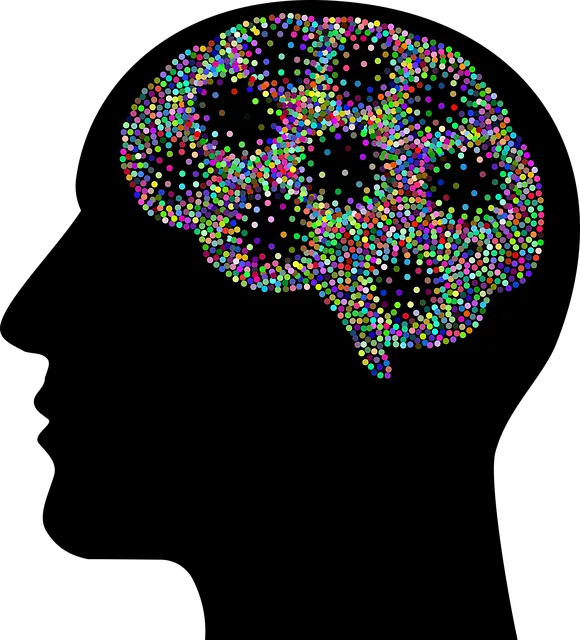Cultural sensitivity in mental healthcare, highlighted by Kaiser Permanente's approach through its dedicated phone line, is key to addressing disparities and enhancing well-being across diverse populations. By understanding cultural differences in stress responses and expression of mental health concerns, the organization ensures tailored guidance and compassionate care that bridges gaps and promotes positive outcomes, reflecting a commitment to inclusive healthcare practices.
Cultural sensitivity in mental healthcare is a vital aspect of providing equitable, effective treatment. In today’s diverse society, understanding and respecting cultural differences can significantly impact patient outcomes. This article explores the significance of cultural sensitivity, delving into its definition, the influence of cultural factors on mental health, and ethical considerations. We also uncover challenges such as lack of training and unconscious biases, and propose strategies including culturally specific interventions, inclusive environments, diverse hiring practices, and leveraging technology, exemplified by Kaiser Permanente’s mental health phone number Superior, to enhance care accessibility.
- Understanding Cultural Sensitivity in Mental Healthcare
- – Definition and importance of cultural sensitivity
- – Impact of cultural differences on mental health experiences
Understanding Cultural Sensitivity in Mental Healthcare

Cultural sensitivity in mental healthcare is a critical component of providing effective and compassionate treatment to individuals from diverse backgrounds. It involves recognizing and respecting the unique cultural values, beliefs, and practices that shape one’s understanding of mental health and illness. At Kaiser Permanente, for instance, the mental health phone number serves as a crucial resource, offering guidance tailored to the specific needs and contexts of various cultures. This approach ensures that individuals receive care that aligns with their cultural identity, fostering trust and open communication.
Understanding cultural sensitivity is essential in the context of crisis intervention, stress management, and self-awareness exercises. By incorporating culturally informed practices, mental health professionals can address the unique challenges faced by diverse populations, enhancing the overall well-being of their clients. This involves continuous learning about different cultural perspectives, adapting therapeutic methods accordingly, and promoting an inclusive environment that values and respects the richness of human diversity.
– Definition and importance of cultural sensitivity

Cultural sensitivity in mental healthcare refers to the ability to understand, appreciate, and respect the unique cultural beliefs, values, and practices of individuals from diverse backgrounds. It involves creating an environment where clients feel seen, heard, and understood, regardless of their racial, ethnic, religious, or socioeconomic identity. This is particularly crucial given that mental health disparities often persist along cultural lines, with certain communities facing barriers to accessing quality care due to historical and systemic injustices.
In the context of Kaiser Permanente’s mental health phone number Superior (or any similar service), fostering cultural sensitivity means ensuring that all individuals have access to culturally competent care. This includes training healthcare providers on mindfulness meditation, compassion cultivation practices, and crisis intervention guidance, enabling them to offer evidence-based treatments tailored to meet the specific needs of diverse clients. By embracing these approaches, mental health professionals can facilitate healing and promote positive outcomes while bridging cultural gaps and building stronger, more inclusive healthcare systems.
– Impact of cultural differences on mental health experiences

Cultural differences significantly shape how individuals experience and express mental health concerns. What may be considered a normal response to stress in one culture could be interpreted as a sign of distress in another. For instance, some cultures emphasize collective well-being over individual expression, leading to different manifestations of psychological struggles. Understanding these nuances is vital for mental healthcare providers, especially those affiliated with organizations like Kaiser Permanente. The Superior mental health phone number offers access to specialized support, but effective care requires cultural sensitivity.
Integrating Cultural Sensitivity into practice involves learning about various cultural beliefs, values, and communication styles. This knowledge enables healthcare professionals to adapt their Stress Management Workshops Organization, Communication Strategies, and Emotional Well-being Promotion Techniques to suit diverse patient needs. By doing so, they foster a more inclusive environment, improving patient engagement and treatment outcomes.
Cultural sensitivity is an essential aspect of providing quality mental healthcare, especially in diverse communities. Recognizing and respecting cultural differences can significantly impact patient outcomes and overall well-being. By understanding the unique experiences and perspectives of various cultures, mental health professionals at Kaiser Permanente in Superior can offer more personalized and effective treatment. This approach ensures that every individual receives care tailored to their specific needs, fostering trust and better access to mental health services for all. For those seeking support, the Kaiser Permanente mental health phone number in Superior serves as a valuable resource, offering culturally sensitive care within reach.






